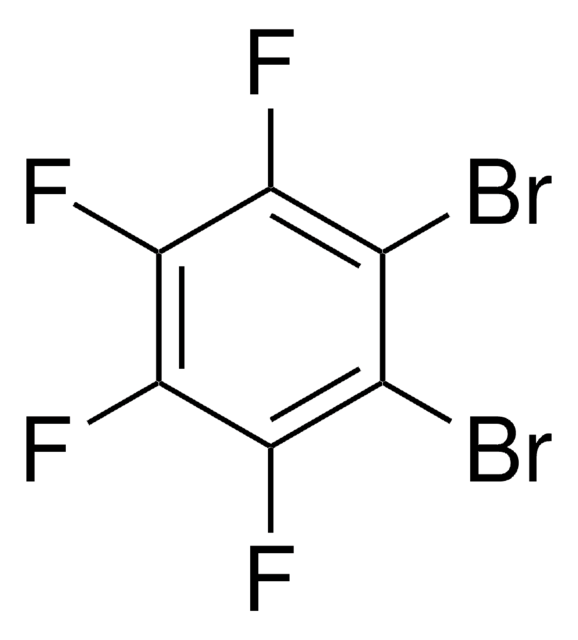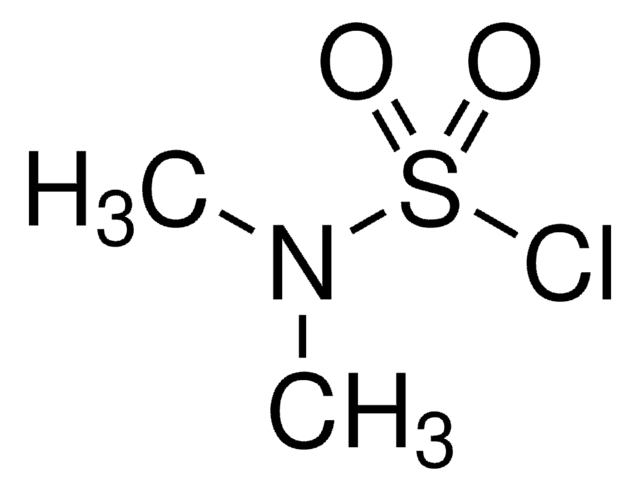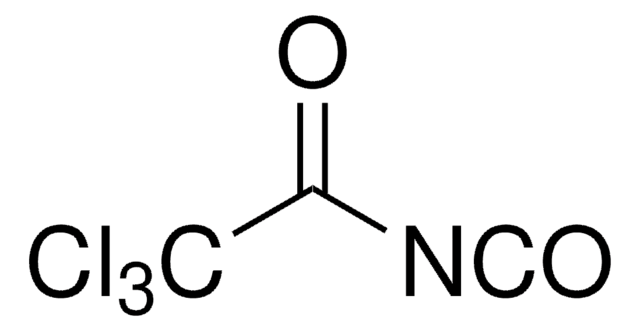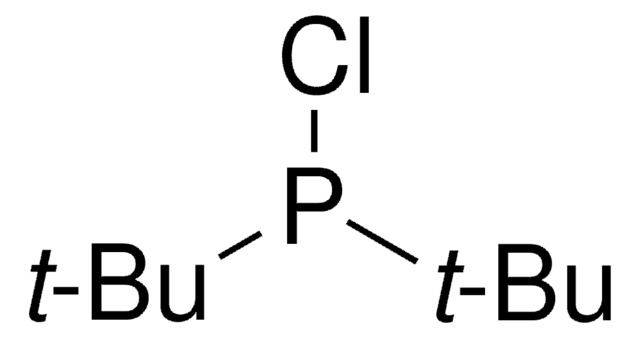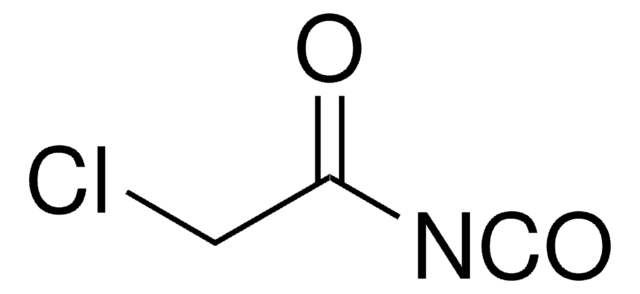142662
Chlorosulfonyl isocyanate
98%
Synonym(s):
N-Carbonylsulfamyl chloride, CSI
About This Item
Recommended Products
vapor pressure
5.57 psi ( 20 °C)
Quality Level
Assay
98%
form
liquid
refractive index
n20/D 1.447 (lit.)
bp
107 °C (lit.)
mp
−44 °C (lit.)
density
1.626 g/mL at 25 °C (lit.)
storage temp.
2-8°C
SMILES string
ClS(=O)(=O)N=C=O
InChI
1S/CClNO3S/c2-7(5,6)3-1-4
InChI key
WRJWRGBVPUUDLA-UHFFFAOYSA-N
Gene Information
human ... ABCB1(5243) , FPR1(2357)
Looking for similar products? Visit Product Comparison Guide
General description
Application
- Chlorosulfonyl isocyanate was used in synthesis and biochemical characterization of new class of membrane-associated glycosyltransferase inhibitors.
- It is synthetically versatile reagent and was used in the preparation of amides, lactams and triazocinones.
- It was employed in regio- and diastereoselective introduction of a protected amino group in synthesis of chiral, polyhydroxylated piperidines.
- It was used as reagent during the synthesis of novel sulfamides.
Signal Word
Danger
Hazard Statements
Precautionary Statements
Hazard Classifications
Acute Tox. 4 Oral - Eye Dam. 1 - Resp. Sens. 1 - Skin Corr. 1B - Skin Sens. 1
Supplementary Hazards
Storage Class Code
8A - Combustible corrosive hazardous materials
WGK
WGK 3
Flash Point(F)
>230.0 °F
Flash Point(C)
> 110 °C
Personal Protective Equipment
Regulatory Listings
Regulatory Listings are mainly provided for chemical products. Only limited information can be provided here for non-chemical products. No entry means none of the components are listed. It is the user’s obligation to ensure the safe and legal use of the product.
JAN Code
142662-RSAMPLE:
142662-VAR:
142662-BULK:
142662-100G:
142662-25G:
142662-25KG:
142662-1KG:
Choose from one of the most recent versions:
Certificates of Analysis (COA)
Don't see the Right Version?
If you require a particular version, you can look up a specific certificate by the Lot or Batch number.
Already Own This Product?
Find documentation for the products that you have recently purchased in the Document Library.
Customers Also Viewed
Protocols
Optimize β-glucuronidase hydrolysis for glucuronide metabolite analysis considering factors like time, temperature, pH, and enzyme concentration.
Our team of scientists has experience in all areas of research including Life Science, Material Science, Chemical Synthesis, Chromatography, Analytical and many others.
Contact Technical Service
